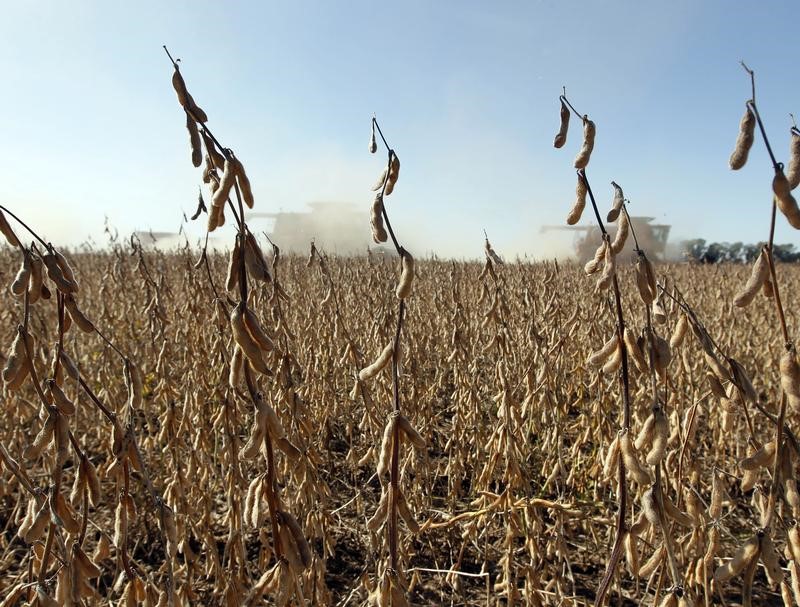By Hugh Bronstein
BUENOS AIRES (Reuters) - Argentina will cut its soybean export tax by 12 percentage points to 18 percent by 2020, the government said on Monday, a move expected to spur more planting in the South American grains powerhouse at a time of rising world food demand.
The decree, published in the government's official gazette, sets out a plan for shaving 0.5 percentage point from the export levy every month in 2018 and 2019. In 2017 the tax will stay at 30 percent, having been cut from 35 percent a year ago soon after President Mauricio Macri took office.
A 2018 and 2019 slide in the export tax should spur farmers to plant more soy, perhaps to the detriment of other (Southern Hemisphere) summer crops like corn and sunflowers, said Esteban Copati, head analyst at the Buenos Aires Grain Exchange.
"It could also breathe life into farming in marginal growing area in northeast and northwest Argentina. More planting area could elevate our national production and generate a higher exportable surplus," Copati said.
Macri's original plan was to cut another 5 points from the soybean export tax in 2017, followed by a 5 point decrease every year after. But that schedule was thrown out once his government got a look at the financial situation it had inherited from President Cristina Fernandez, a free-spending populist who feuded with farmers until her second term expired 13 months ago.
The half-point-per-month export tax reduction in 2018 and 2019 will also apply to the 27-percent levy currently placed on soyoil and soymeal exports. Argentina is the world's top soyoil and soymeal exporter and its No. 3 supplier of raw soybeans.
Soon after taking office in December 2015, Macri let Argentina's peso
With the country in recession, Macri fired his economy minister last week. The new economic team is under pressure to foster growth ahead of October mid-term elections, which will be key to getting the rest of Macri's free-market agenda through Congress and set the stage for a possible 2019 re-election bid.

Argentina is expected to plant 20.3 million hectares with soy this crop year, according to the government, down from 20.6 million hectares dedicated to soy in the 2015/16 season.